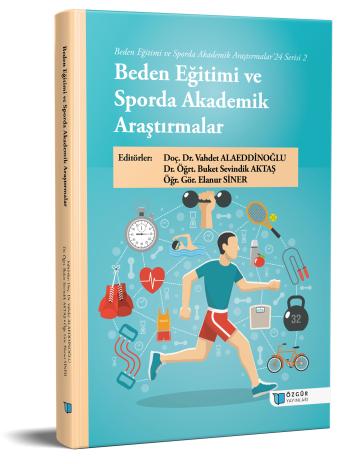
Buz Hokeyinde Etik ve Fair Play: Sorunlar ve Çözümler
Şu kitabın bölümü:
Alaeddinoğlu,
V.
&
Aktaş,
B.
S.
&
Siren,
E.
(eds.)
2024.
Beden Eğitimi ve Sporda Akademik Araştırmalar.
Özet
Bu çalışma, buz hokeyinde etik ve fair play kavramlarını ele alarak, saldırganlık ve şiddet davranışlarının önlenmesi ile fair play'in korunmasının önemini vurgulamaktadır. Etik, bireylerin ve toplulukların doğru ve yanlış kavramlarına dayalı davranışlarını düzenleyen ilkeler bütünüyken, fair play adil oyun, dürüstlük, eşitlik ve kurallara uyum gibi değerleri ifade eder. Buz hokeyinde etik ve fair play, sporun fiziksel ve rekabetçi doğasını dengeleyerek oyuncuların güvenliğini sağlamayı ve sporun olumlu bir imajını sürdürmeyi hedefler.
Buz hokeyinin doğasında bulunan fiziksel temas, saldırganlık ve şiddet risklerini artırmaktadır. Bu bağlamda çalışma, farklı saldırganlık türlerini (enstrümantal, düşmanca, dolaylı, pasif, sözlü, fiziksel, psikolojik, grup ve yapısal saldırganlık) ve bu davranışların oyuncu sağlığı, takım performansı, sporun imajı, hukuki ve ekonomik etkilerini detaylandırmıştır.
Saldırganlık ve şiddetin önlenmesi için disiplin kurallarının uygulanması, eğitim ve farkındalık programlarının yaygınlaştırılması, psikolojik destek sağlanması, teknoloji ve video analizlerinin kullanılması gibi stratejiler önerilmektedir. Türkiye Buz Hokeyi Federasyonu'nun (TBHF) hayata geçirdiği Integrity Programı, disiplin talimatları ve antrenör eğitim seminerleri, Türkiye'deki önemli uygulamalardan bazılarıdır. Ayrıca NHL, IIHF, Kanada ve İsveç buz hokeyi federasyonları gibi uluslararası örnek uygulamalar, bu konuda ilham verici niteliktedir.
Sonuç olarak, etik ve fair play değerlerinin benimsenmesi, buz hokeyinin adil, güvenli ve sürdürülebilir bir spor dalı olmasını sağlamanın yanı sıra genç nesillere doğru rol modeller sunar. Bu kültürün güçlendirilmesi, buz hokeyinin ulusal ve uluslararası düzeyde daha geniş kitleler tarafından benimsenmesine katkıda bulunacaktır. Çalışma, buz hokeyinde saldırganlık ve şiddeti önlemeye yönelik stratejilerin artırılmasının bir zorunluluk olduğunu vurgulamaktadır.

